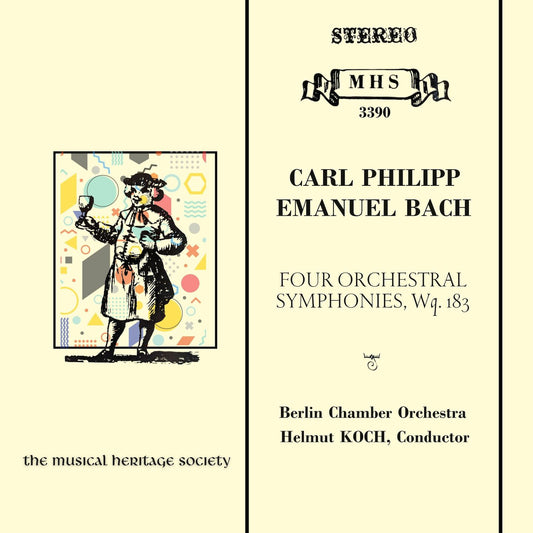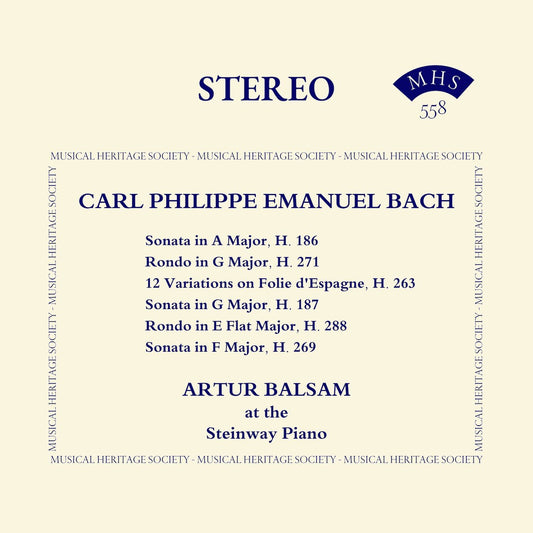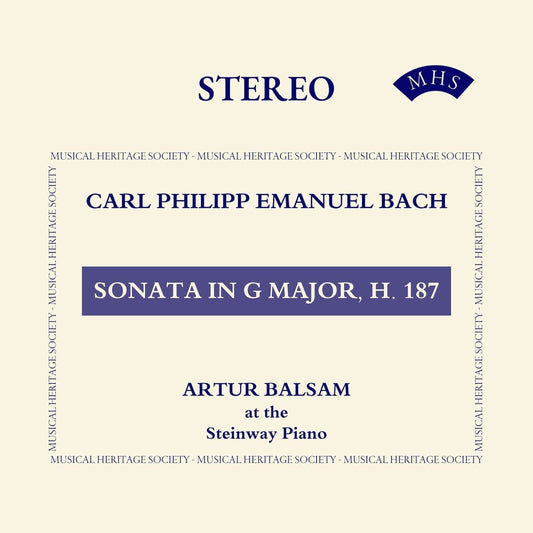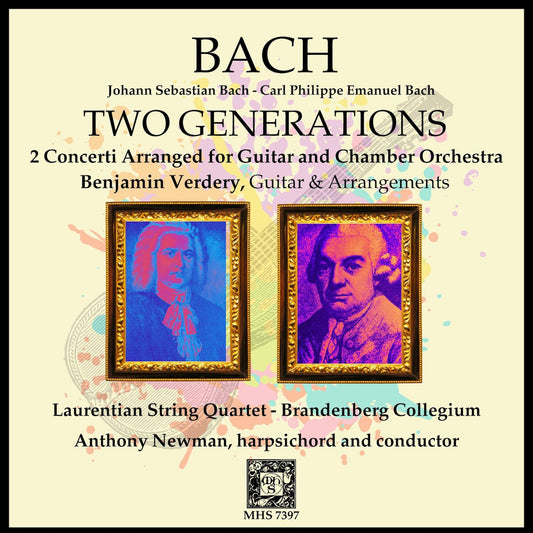Collection: CARL PHILIPPE EMANUEL BACH (1714-1788)
Born in Weimar, with the renowned Georg Philipp Telemann as his godfather, C.P.E. received his primary musical education directly from his father after the family moved to Leipzig. J.S. Bach was his only teacher for composition and keyboard playing. Recognizing the value of broad learning, C.P.E. also pursued a university education, studying law in Leipzig and Frankfurt (Oder) before fully committing to a musical career. This intellectual background likely contributed to his articulate writings on music later in life.
In 1738 (formally appointed 1741), Bach entered the service of Crown Prince Frederick of Prussia (later Frederick the Great) in Berlin, where he remained for nearly three decades as a harpsichordist in the royal orchestra. Known as the "Berlin Bach," he established himself as one of Europe's preeminent keyboard performers. However, Frederick's musical tastes were relatively conservative, favoring the galant style and his own flute playing, and he didn't fully appreciate Bach's more adventurous compositional spirit. Despite this, the Berlin period was highly productive. Bach composed numerous keyboard sonatas, including the important "Prussian" (1742) and "Württemberg" (1744) sets, as well as concertos and symphonies.
It was during these years that Bach cultivated the empfindsamer Stil. Contrasting with the Baroque Affektenlehre (which typically maintained a single emotion per movement) and the often superficial elegance of the galant style, Empfindsamkeit aimed for a more direct, personal, and nuanced expression of varied and often rapidly shifting emotions. This style is characterized by abrupt changes in mood and dynamics, unexpected harmonic turns, dramatic pauses, expressive ornamentation (like sighs or appoggiaturas), and melodies patterned after rhetorical speech. It found its ideal voice in intimate keyboard music, particularly for the clavichord and early fortepiano, instruments capable of subtle dynamic gradations unavailable on the harpsichord. His compositions often sound improvisatory, quirky, and intensely subjective.
Bach's most significant contribution from this period, beyond his compositions, was his seminal treatise, Versuch über die wahre Art das Clavier zu spielen (Essay on the True Art of Playing Keyboard Instruments, Part 1 published 1753, Part 2 in 1762). This comprehensive work covered not only fingering (famously advocating the use of the thumb) and ornamentation but also performance practice, accompaniment (figured bass), and improvisation. It became an indispensable guide for musicians well into the next century and was diligently studied by Haydn, Mozart, and Beethoven.
In 1768, Bach left the constraints of the Berlin court to succeed his aging godfather, Telemann, as Kantor of the Johanneum Lateinschule and music director of the five principal churches in Hamburg – a position similar to his father's in Leipzig. As the "Hamburg Bach," he oversaw a demanding schedule of church music production, composing numerous Passions, cantatas, and other liturgical works (including the oratorios Die Israeliten in der Wüste and Die Auferstehung und Himmelfahrt Jesu). While fulfilling these duties, he also continued to compose instrumental music with characteristic originality and vigour, including vibrant symphonies (like the Wq. 182 set commissioned by Baron van Swieten) and the influential keyboard collections für Kenner und Liebhaber ("for Connoisseurs and Amateurs"). He also actively promoted the works of other composers, including his father, in Hamburg concerts.
C.P.E. Bach died in Hamburg in 1788, a highly respected figure across Europe. His legacy lies in his deeply personal and expressive musical language, his innovations in keyboard technique and composition, and his crucial role in paving the way for Classicism. He demonstrated how music could convey subjective feeling with startling immediacy, moving beyond Baroque convention towards a new era of emotional depth and dramatic contrast.







